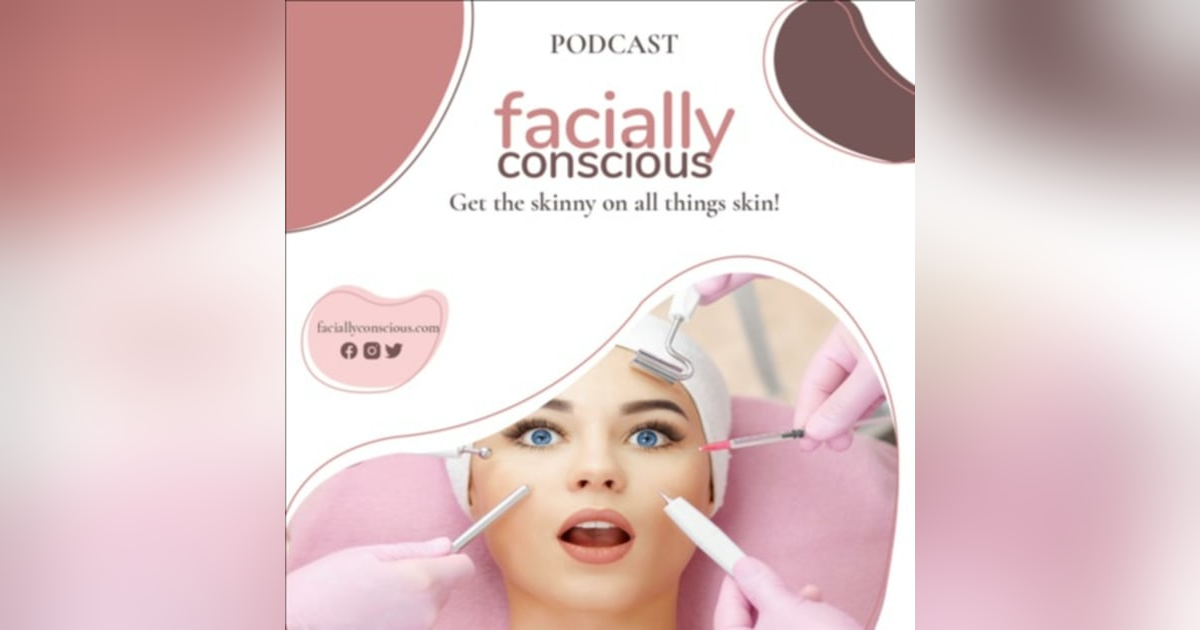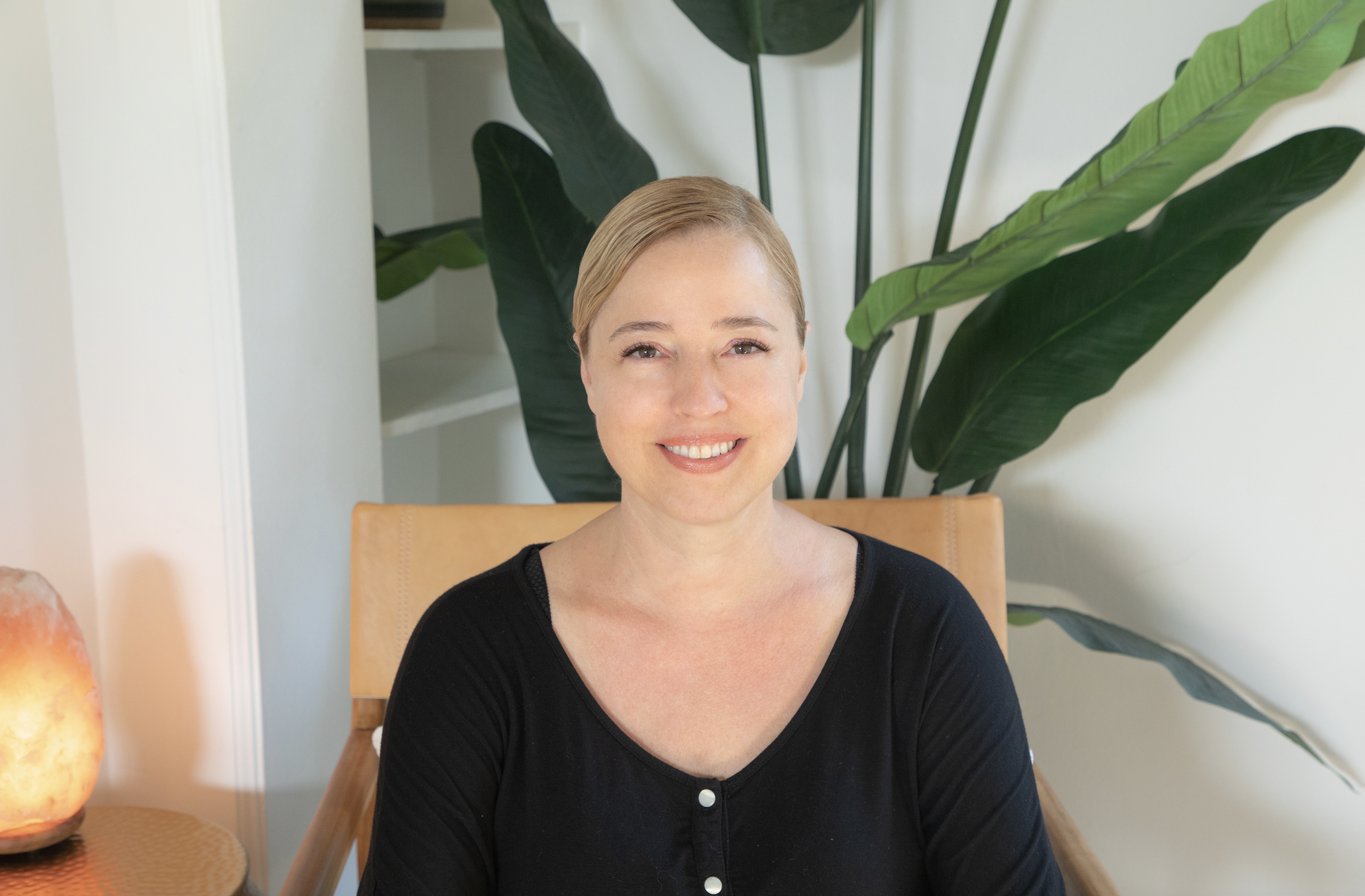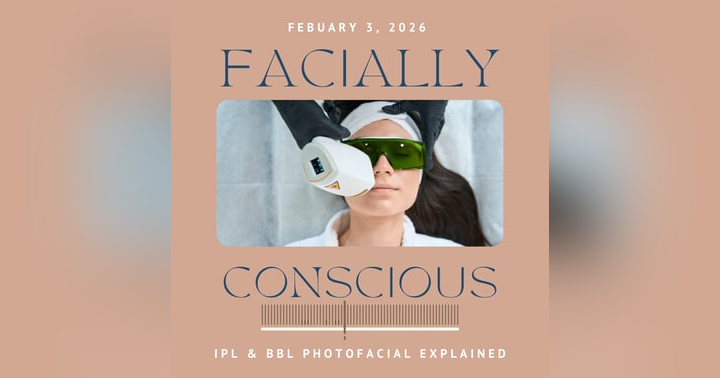From Ancient Wisdom to Modern Science: Why Extra Virgin Olive Oil Is Transforming Skincare

As a medically trained master esthetician who has spent years helping clients navigate the overwhelming world of skincare, I'm always intrigued when ancient remedies meet modern science. Our recent conversation with Kim Walls, co-founder and CEO of Furtuna Skin, on the Facially Conscious Podcast opened my eyes to something I thought I already knew everything about: olive oil.
You've probably heard the buzz about extra virgin olive oil (EVOO) in skincare lately. It's appearing everywhere, from high-end serums to DIY beauty blogs, and even Starbucks is adding it to coffee. But after talking with Kim, who represents the fourth generation of her family in the skincare industry, I realized that not all olive oils are the same – and that difference could change your skin.
The Science Behind the Ancient Secret
During our episode "Olive Oil: From Labels to Luxury with Kim Walls," Kim shared something that completely changed my view of this Mediterranean staple. While we've long known about olive oil's benefits through traditional use—think Cleopatra's beauty rituals—modern research from institutions like Harvard and Yale now confirms what our ancestors knew instinctively.
The most fascinating revelation? High-quality extra virgin olive oil can actually increase telomere length. These are the protective caps on our genetic strands that help DNA replicate without losing integrity. In simpler terms, the genes responsible for skin elasticity, hydration, and protection from oxidative damage can actually be improved by the right kind of olive oil.
Having seen many clients struggle with premature aging and skin barrier issues, this genetic-level approach to skincare feels revolutionary. We're not just addressing symptoms on the surface – we're potentially supporting the skin's ability to repair and regenerate at the cellular level.
Why Your Kitchen Olive Oil Won't Cut It
Here's where things get interesting for skincare professionals. When clients tell me they're using cooking olive oil on their skin, I tell them they need to use properly formulated olive oil to penetrate the skin effectively. However, Kim's explanation of olive oil grades completely changed my understanding.
True extra virgin organic olive oil must meet strict international standards. It should be processed from harvest to press within 24 hours, maintain specific levels of low free acids and high fatty acids, and meet certain standards for flavor characteristics like pungency, fruitiness, and bitterness. These aren't just random criteria—they reflect the oil's chemical makeup and, ultimately, its health benefits.
But here's where Furtuna takes it even further. Their olive oil is processed within six hours of picking, not 24. The difference in potency is measurable – their oil contains polyphenol levels that are 68% higher than other extra virgin organic olive oils. For those of us who understand that potency drives performance in skincare, this attention to detail makes complete sense.
The Regenerative Beauty Revolution
What really excited me about our conversation was Kim's talk about regenerative beauty. This isn't just another buzzword – it's a complete approach that considers the entire ecosystem of skin health. Instead of the old way of thinking of skin as just a surface for applying products, regenerative beauty looks at how everything from soil health to extraction methods influences the final product's effectiveness.
Kim's company sources from an 800-acre estate in Sicily, where they oversee everything from how the olive trees are nourished to when they are harvested. This level of control allows them to optimize different olive varieties for specific skin benefits. They are literally blending various types of olives to create the perfect mix of omegas, sterols, and other compounds that our skin needs. It would be incredible to visit this facility... maybe someday.
Innovation Meets Tradition
Perhaps the most intriguing aspect of Furtuna's approach is their Sound Bath Extraction method, borrowed from the pharmaceutical industry. Instead of using chemical solvents or heat that can degrade beneficial compounds, they employ ultrasound waves to extract active compounds from wild-foraged herbs into their olive oil and olive leaf water bases.
This means their extraction process is entirely clean, quick, and maintains the potency of the ingredients. Even their "waste" product is so pure it can be used as fertilizer or eaten. As someone who has always been concerned about what we put on our skin and ultimately absorb into our bloodstream, this level of purity is reassuring.
Beyond Barrier Repair
While we often think of olive oil mainly for barrier repair and hydration, Kim's research uncovers much broader benefits. The glycolipids in high-quality olive oil help support hydration at the genetic level, improving your skin's ability to retain and distribute moisture over time. The anti-inflammatory properties can assist with issues from rosacea to eczema, while the sterols bolster the skin's natural protective functions.
What struck me most was Kim's point about bioavailability. It's not just about which beneficial compounds are in a product – it's about how accessible those nutrients are to your skin. This is where the quality of sourcing, processing, and formulation becomes essential.
The Bigger Picture
Our conversation with Kim reminded me why I love this industry so much. When we find ingredients that work both topically and internally to support overall health, we're not just improving skin appearance – we're potentially enhancing quality of life. Kim's emphasis on the connection between gut health, inflammation, and skin health aligns with everything I see in my practice.
Her advice about respecting ingredients also resonated. In an industry where it's easy to just toss trending actives together, taking the time to understand how ingredients are sourced, processed, and formulated genuinely impacts results.
A Personal Note on Product Overwhelm
During our episode, we discussed a listener question about feeling overwhelmed by skincare trends and having drawers full of products that don't seem to work. This resonates with many of my clients. My advice? When you find products that work, stick with them. Use them as directed, for the full recommended time, before trying the next trend.
The skincare industry is great at marketing, but real results come from consistency and using products made with integrity – like what Kim described with Furtuna's approach to olive oil.
As Kim beautifully expressed during our conversation, we need to learn to listen to our bodies and respect what they're telling us. Sometimes the most effective skincare routine is also the simplest, made up of ingredients that have stood the test of time but are crafted with modern precision.
To read more from Trina Reneá, join her on Substack.









